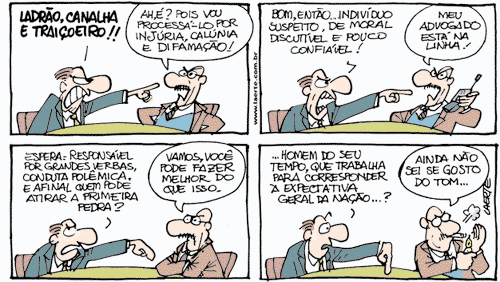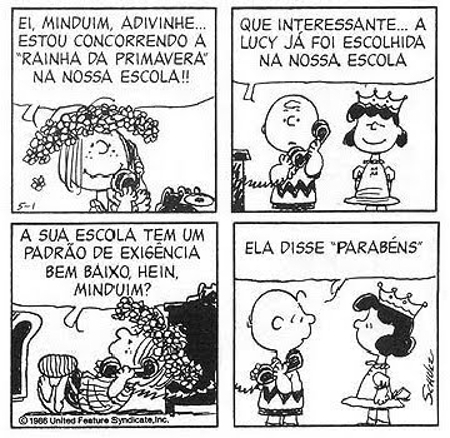When we elaborate statements, whether written or oral, the words used (albeit spontaneously and unpretentiously) do not appear by chance. To claim that our discourse is free from any ideological interference would be naive to say the least. We are social and historical individuals, whose idiosyncrasies are revealed through vocabulary choices and even bodily expressions.
We are all the time involved in communication situations in different environments, with the most diverse interlocutors. The fact is that speech is one of the most powerful instruments of social interaction, through it we express ourselves and let our singularities surface. No speech is devoid of intention, we are constantly trying to convince, persuade and awaken in our interlocutors sympathy and adherence to what we are talking about. The use of euphemisms is one of the most interesting elements for the Speech analysis, a field of linguistics and communication specialized in analyzing ideological constructions present in a text. Through AD (Discourse Analysis), we can analyze texts from the media, advertising, among others, discovering their ideologies and intentions.
The euphemism is a figure of speech characterized by the use of more pleasant terms to soften an idea or expression. In addition to being used to soften a discourse with a “heavier” semantic content, the euphemism can also be used with a certain comicity in the speaker's intention, denoting ironies and ideologies present in the speech:

The euphemisms can be used to lend a certain comicness to the text. Cartoonist Laerte's strip
The euphemism is an important resource for the construction of meanings in a text, as there are situations in which it is necessary to replace words that, historically, carry connotations in their meaning negative. This type of vocabulary adequacy has gained increasing strength, especially among advocates of politically correct speech, who believe that negative words cognitively strengthen negative attitudes and vice versa, thus reinforcing the idea that language can also be a source of prejudices. Furthermore, euphemisms are constantly used in our daily lives as an important linguistic resource for the maintenance of diplomacy in social relations. Note an example of euphemism in Charlie Schulz's Charlie Brown cartoon:
Do not stop now... There's more after the advertising ;)

The euphemisms are used in the construction of politically correct discourse, which is important for the maintenance of diplomacy in social relations
From the analysis of the various discourses to which we are exposed in our daily lives, whether it is the discourse of the big media, the discourse of social relations and/or the advertising speech, we can reach the conclusion that the substitution of a more “aggressive” word for a “softer” one is not always just a matter of semantics or of vocabulary adequacy. The use of euphemisms and other linguistic resources that make a text more “palatable” highlights the importance of language in materializing an ideology. We are social beings, and all our speech acts are permeated by our beliefs and ideals. Using euphemistic terms does not make the speaker a hypocrite — someone who uses the language in a “dishonest” way only to please your interlocutors - since in certain situations of use they are essential for a good relationship Social.
By Luana Castro
Graduated in Letters
Would you like to reference this text in a school or academic work? Look:
PEREZ, Luana Castro Alves. "Euphemism"; Brazil School. Available in: https://brasilescola.uol.com.br/redacao/eufemismo.htm. Accessed on June 27, 2021.

